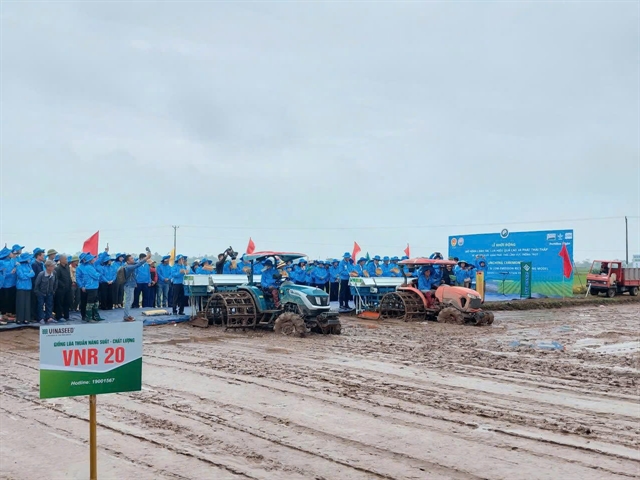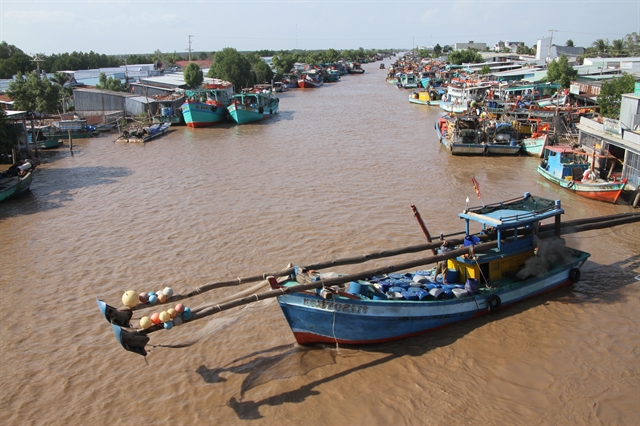 Environment
Environment

Vietnamese and foreign experts and scientists gathered at a conference in Cần Thơ City on Wednesday to seek solutions to boost sustainable development in the Mekong Delta region amid climate change.

|
| A fishing vessel in the Mekong Delta Province of Bạc Liêu is about to go on a fishing trip at sea. VNA/VNS Photo Chanh Đa |
CẦN THƠ — Vietnamese and foreign experts and scientists gathered at a conference in Cần Thơ City on Wednesday to seek solutions to boost sustainable development in the Mekong Delta region amid climate change.
Participants agreed that the Mekong Delta is vulnerable to climate change and rising sea levels, which are developing faster than previously forecast.
The exploitation of the Mekong River’s upstream water resources, especially the building of hydropower dams, has caused changes in flow and reductions of alluvium deposits, harming fisheries resources and worsening saltwater intrusion. The over-exploitation of mud and sand has also increased the risk of erosion.
Meanwhile, experts pointed out that resources for investment development have remained limited, while high-quality human resources are moving to other localities.
They held that it is necessary to ensure greater investment in science and technology development and application to boost sustainable development and maintain the cultural identity of the region.
Associate Professor Nguyễn Lý Bình, from Cần Thơ University, proposed the formation of ecological areas for agricultural development, along with agricultural expansion in association with the development of economic sub-regions and the switching of rice fields to fruit orchards and breeding farms.
Meanwhile, according to Professor Ishimatsu Atsushi, Academic Advisor at the Japan International Cooperation Agency (JICA), it is necessary to conduct a detailed assessment of climate change in the future, thus seeking suitable models for the changing conditions in a spirit of following the will of nature.
He also underlined the need to evaluate the socio-economic efficiency and environmental impact of land-use models, while designing policies to adapt to climate change and technology development.
Professor Trần Ngọc Hải from Cần Thơ University, said it is crucial to build a more suitable agricultural structure, ensuring the connectivity of production chains and deeper participation in global value chains, while focusing more on processing and agricultural supporting industries. — VNS




